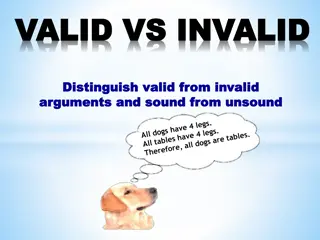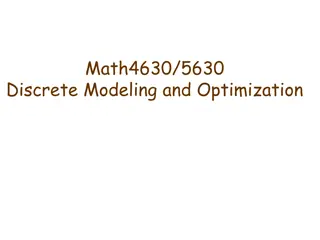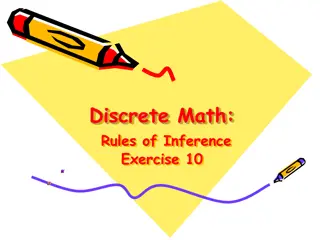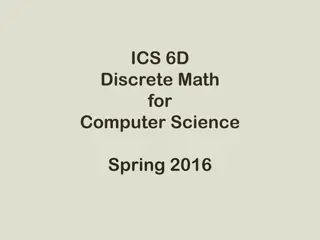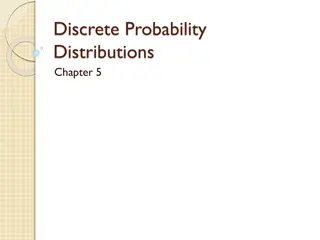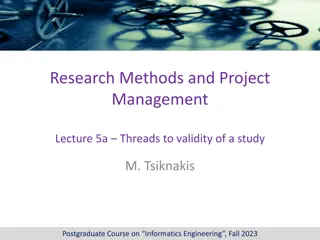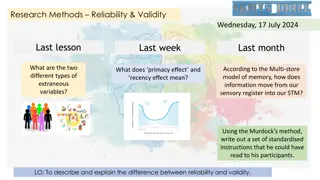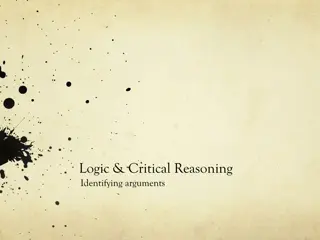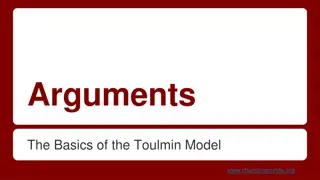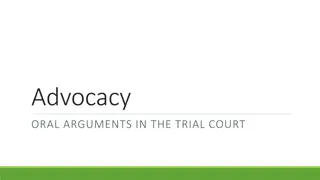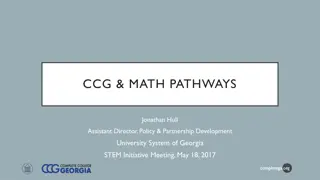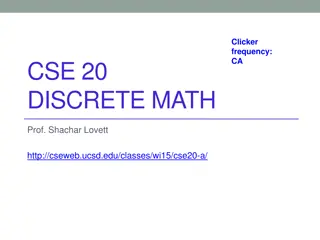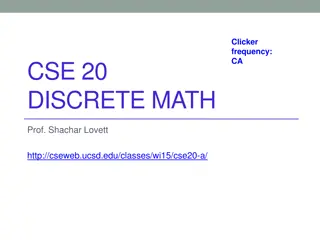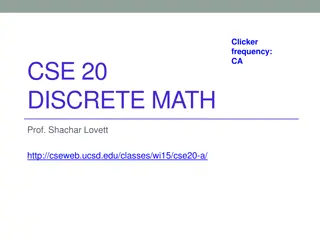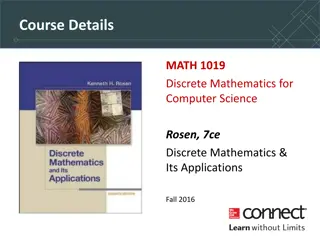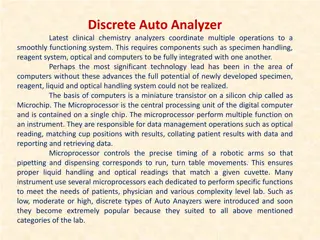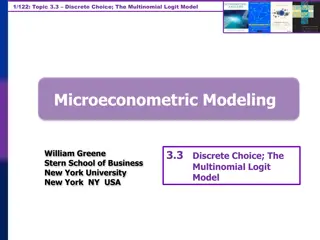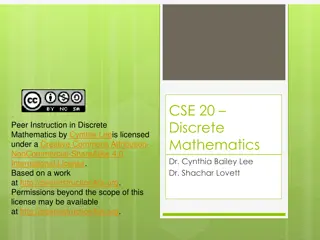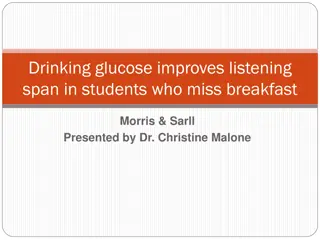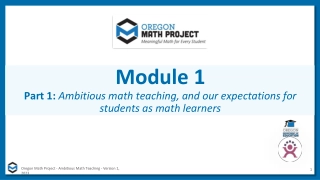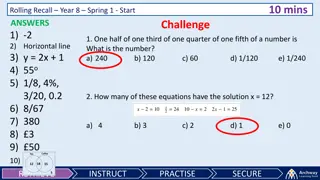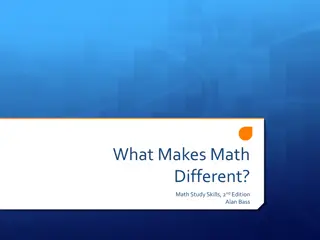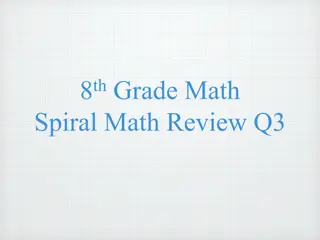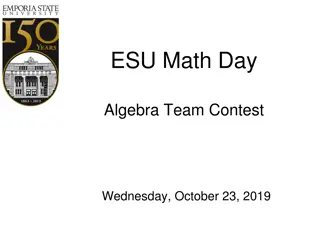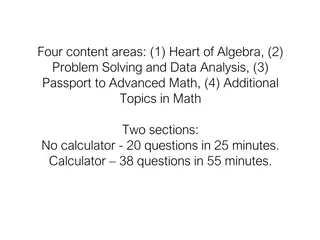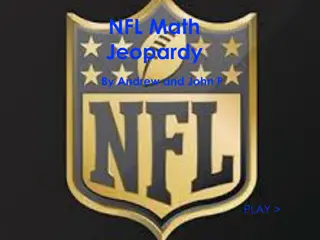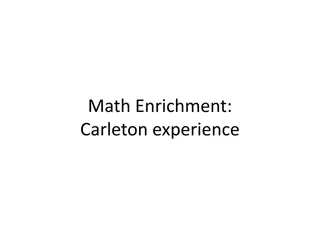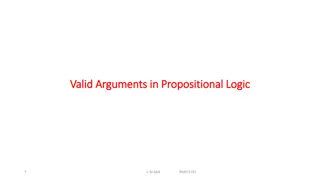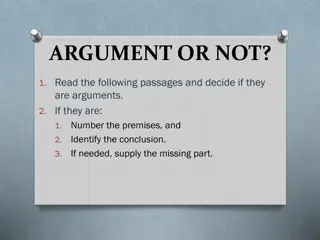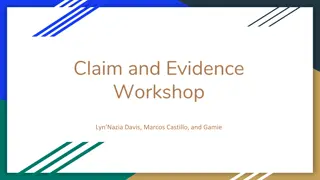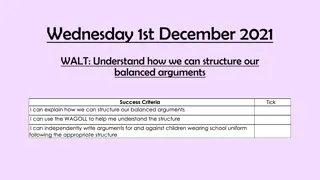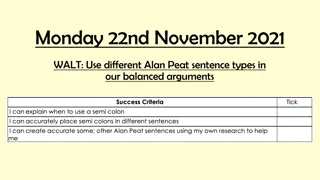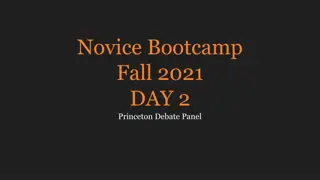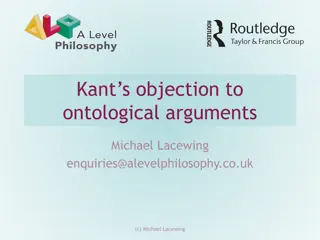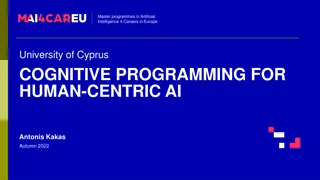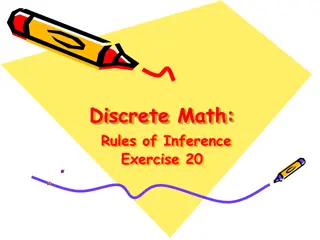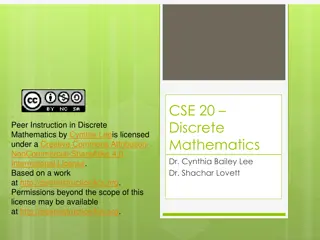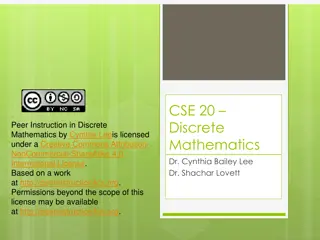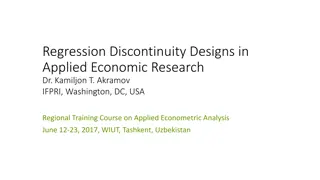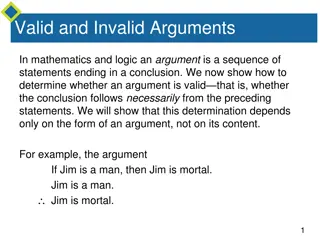Analyzing Validity of Arguments in Discrete Math
This exercise assesses the validity of arguments in discrete mathematics by identifying logical errors or applying rules of inference. The solutions provided highlight fallacies such as affirming the conclusion, modus tollens, and denying the hypothesis. Understanding these principles is crucial for sound logical reasoning in mathematical contexts.
Download Presentation

Please find below an Image/Link to download the presentation.
The content on the website is provided AS IS for your information and personal use only. It may not be sold, licensed, or shared on other websites without obtaining consent from the author. Download presentation by click this link. If you encounter any issues during the download, it is possible that the publisher has removed the file from their server.
E N D
Presentation Transcript
Discrete Math: Rules of Inference Exercise 15
Exercise Determine whether each of these arguments is valid. If an argument is correct, what rule of inference is being used? If it is not, what logical error occurs? a) If n is a real number such that n > 1, then n2 > 1. Suppose that n2 > 1. Then n > 1. b) If n is a real number with n > 3, then n2 > 9. Suppose that n2 9.Then n 3. c) If n is a real number with n > 2, then n > 4. Suppose that n 2. Then n2 4.
Solution a) This is the fallacy of affirming the conclusion, since it has the form "p q and q implies p." b) This reasoning is valid; it is modus tollens. c) This is the fallacy of denying the hypothesis, since it has the form "p q and P implies q ."
References Discrete Mathematics and Its Applications, McGraw-Hill; 7th edition (June 26, 2006). Kenneth Rosen Discrete Mathematics An Open Introduction, 2nd edition. Oscar Le in A Short Course in Discrete Mathematics, 01 Dec 2004, Edward Bender & S. Gill Williamson


